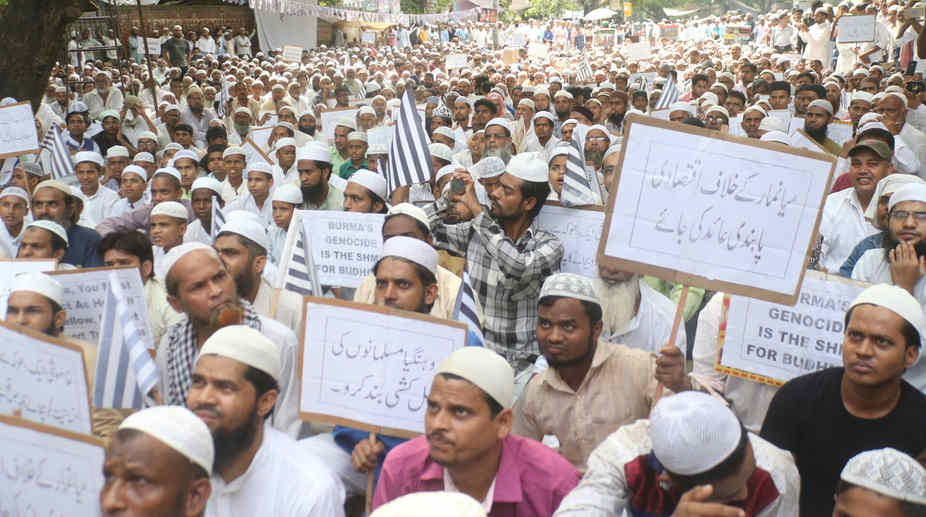EC defends integrity of EVMs in SC, asserts it can’t be manipulated
The Election Commission of India (ECI) defended the integrity of the electronic voting system, asserting that it was not prone to any external interference or manipulations.

(Photo: IANS/File)
The Supreme Court on Tuesday was told by a Rohingya petitioner that there were no serious moves by the Indian government to send Rohingya refugees in the country back to Myanmar.
Mohammad Salimullah’s counsel Prashant Bhushan told a bench of Chief Justice Dipak Misra, Justice A.M. Khanwilkar, and Justice D.Y. Chandrachud that there was no substantial change in the situation since the last hearing in the matter.
Bhushan’s statement came in response of a query on the situation vis-a-vis the Rohingyas since the case was last heard.
Advertisement
He said a survey of Rohingya refugees was on, describing it as “all right”.
The top court is hearing a number of petitions that seek to block the deportation of Rohingya refugees who have fled Myanmar since August 25 to escape persecution.
The top court was initially moved by Mohammad Salimullah and another Rohingya refugee to seek its intervention to stop the Centre’s moves to deport them.
In the last hearing on October 13, the court had asked the Centre to strike a balance between national security, economic interests, and humanitarian considerations with regard to the Rohingyas.
Chief Justice Misra said in the last hearing: “(We should see) how we reconcile national security and economic interests and the protection of women, children, old, infirm, sick and innocent” Rohingyas and “how far this court can go”.
“As a constitutional court of this country, we can’t be oblivious to this and simultaneously the executive too can’t be oblivious to this.”
The court observations came as the Centre resisted its earlier observation that the government could take action involving the Rohingyas wherever necessary but they should not be deported.
The Centre has, right from the beginning, questioned the maintainability of petitions of the two Rohingya refugees, contending they cannot invoke the Supreme Court jurisdiction for the protection of their right to life and liberty.
However, the top court on October 13 clarified that Article 21 of the Constitution — that guaranteeing right to life and liberty — was available not only to the Indian citizens but all those living in India.
Article 21 says: “No person shall be deprived of his life or personal liberty except according to procedure established by law.”
Advertisement